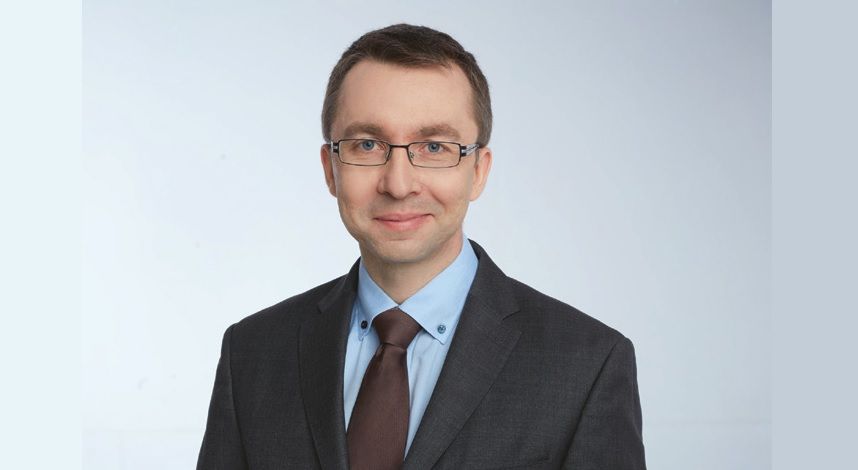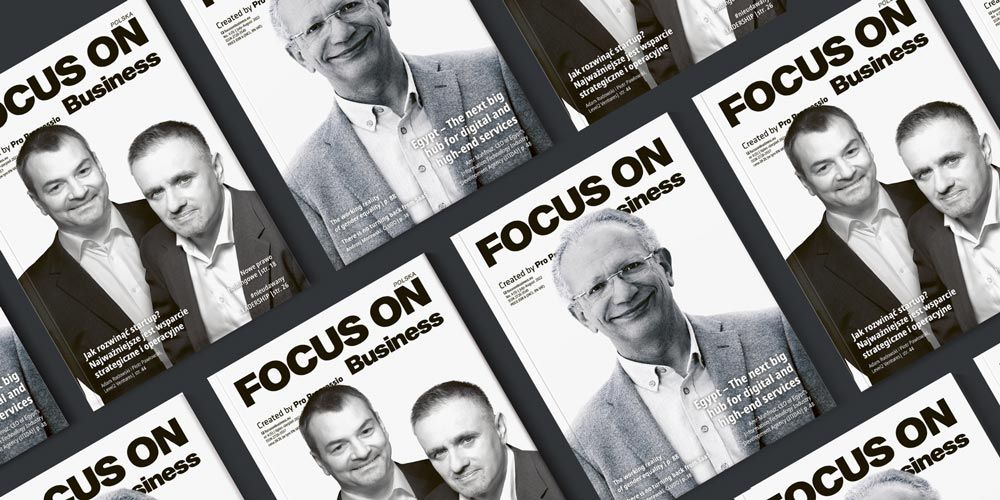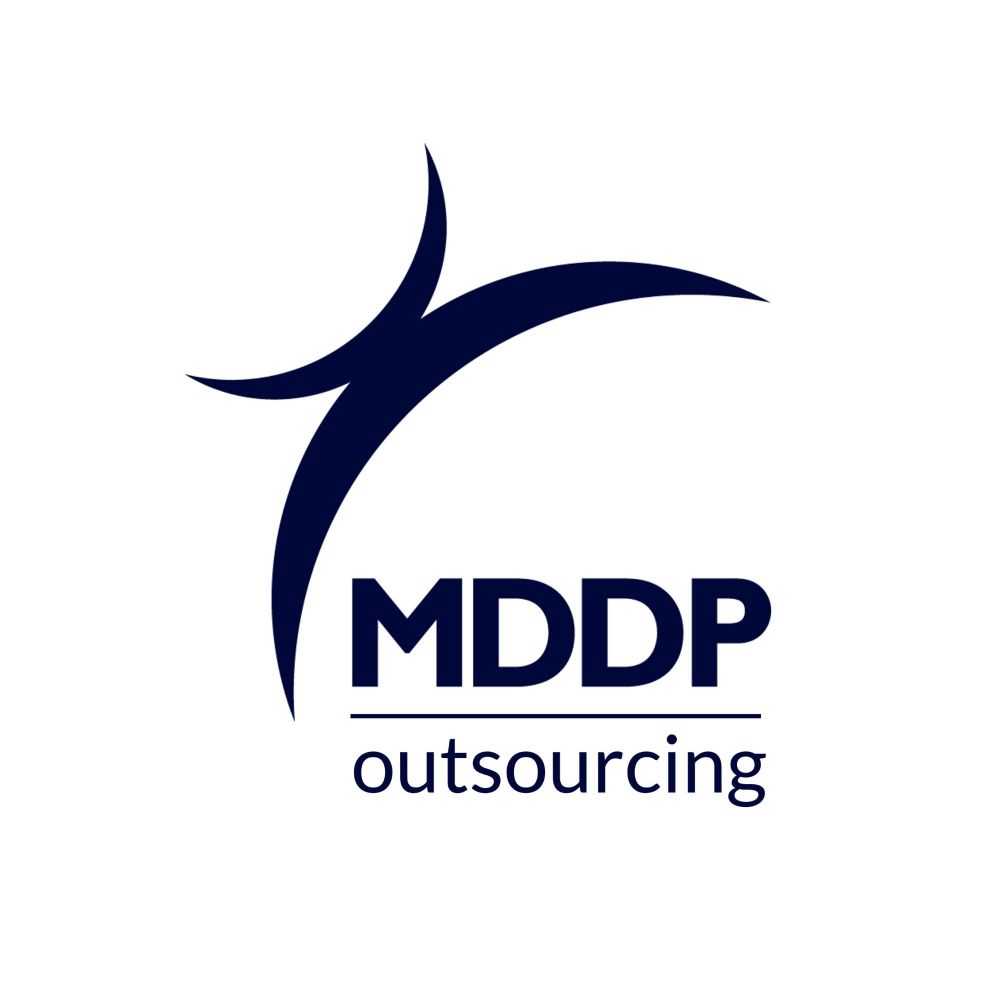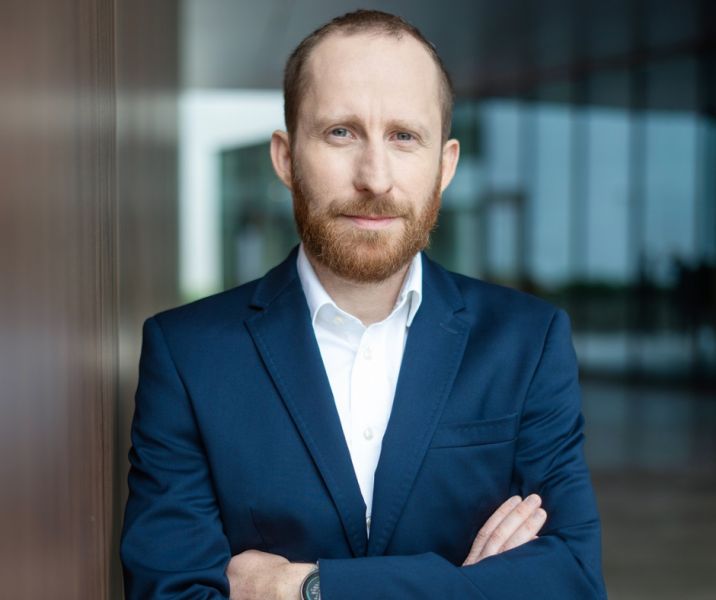Our clients are the source of our inspiration

An interview with Rafał Michniewicz, Partner at MDDP Outsourcing.
FOCUS ON Business: June marked the 15th anniversary of your work at MDDP Outsourcing. What changes have taken place in the structure of the company, its business activities and the range of services you offer during that period? Which of these changes do you consider to be the most important?
Rafał Michniewicz, MDDP Outsourcing: On the one hand, these 15 years have passed surprisingly quickly, and on the other hand, almost everything has changed in our business activities. We started from scratch, with one person in a department – and that allowed us to provide services on a small scale. We wanted to develop organically, improve processes and then scale up. In terms of scale, we have fared quite well – over a 15-year period, we have had double- -digit growth in revenue from accounting services every year.
As regards process improvement, it seems that we have not been idle either. We started with the classic, manual posting of all documents by the accounting team; today, over 90% of documents are sent to us electronically, and those that arrive in paper form are immediately digitised. All of them are recognised by OCR systems. Thanks to this, we have limited the rewriting of data to the necessary minimum. On top of that, we have applied a layer of intelligent algorithms that do not yet book everything themselves – but they already give perfect prompts. They are followed by robots that eliminate tedious and repetitive activities Our work has been divided into processes, which, on the one hand, makes it possible to achieve high specialisation and the quality which goes hand in hand with that, and on the other hand, allows us to deal with several cases or client requests at the same time. However, it is the client that is still the centre of our attention, which is why they have their own highly qualified and experienced account manager who guides them through all the issues, no matter who is involved in handling those issues. The way we develop makes us unlike ourselves five years ago, let alone what the company looked like 15 years ago.
It seems like you have significantly increased the involvement of technology. Why?
I get the impression that most businesses in Poland have developed technologically in the last 15 years. In the accounting industry, which employs a lot of people with a penchant for tradition, this technology race goes at several different speeds, but we are among those people who believe that certain changes must come sooner rather than later. Not because regulations encourage or force these changes as a result of subsequent new requirements being imposed, nor due to the search for savings on labour costs. Technological changes allow us to provide clients with added value, and this means, by way of illustration, that clients pay us for thinking, not for rewriting. This, in turn, allows us to enhance the team’s qualifications and pay more and more for using these top skills.
Finally, this allows people to be satisfied with doing work that is appreciated, rather than being frustrated that they haven’t had time to get all the invoices into the system, colloquially speaking, while the client is already insisting on a report. Whether we like it or not, the times of contemplating each invoice are gone.
Where have you drawn your inspiration from over the years?
On the one hand, our clients are a source of constant inspiration for us – the way they develop, the ideas they have for their business, and how we have to keep up with them. On the other hand, we want to be open to the world and draw inspiration also from the world that surrounds us, especially technology. Since breakthrough technologies or new possibilities are appearing around us all the time, since you can pay by BLIK, dictate e-mails or text messages, recognise text in photos or recognise a credit card number with the camera of your mobile phone on a tropical island – why should accounting be about rewriting invoices to the system or filling in tables for hours on end?
Accounting, bookkeeping and reporting issues are an area that not only is quite complex by nature but is also subject to constant legislative changes. What are the greatest challenges associated with that?
Paradoxically, substantive issues are not our greatest and most common challenges. Fair enough, the subject matter itself is sometimes difficult and complicated – but this is actually interesting and thus also pleasant. What poses the greatest challenge is the lack of legal stabilisation, or uncertainty as to whether today’s regulations will not be amended tomorrow and as to how these regulations will be interpreted.
Contrary to some perceptions, we, accountants, are not happy for changing laws. We would definitely prefer to earn money on providing accounting services according to some fixed rules of the game rather than thanks to the fact that the rules are changing all the time. Another group of issues that affect us on a daily basis are those generated by the fast-paced world – changes in technology and systems, pressure for quick reporting, data to be provided here and now, today one way and tomorrow in a different way – combined with the fact that businesses often have no time to think over what they need from accountants; all that is more difficult to address than substantive issues. And the last group of issues – the shortage of people with the appropriate competences in the market. To my mind, that also bothers us much more than the level of subject-matter complexity.
It sounds like a lot of challenges. How does MDDP Outsourcing respond to them?
We successfully resolve substantive issues thanks to our scale and specialisation – we are nearing 250 people in the Outsourcing department, among whom there are a number of very experienced employees. We are part of the MDDP group, and therefore we also have access to the best tax advisors in the market.
As for the fast-paced world, we are helped by numerous specialists – other than front office ones – who are also part of our team, from the IT department to the Performance Improvement team, to the supportive Admin staff. It is thanks to the cooperation of us, accountants, with those departments that we have our procedures, systems and applications. Of course, it is not without significance that we make considerable investments in development every year. We are also assisted by procedures that let us tame volatility as well as help clients find the most effective solutions to their problems.
When it comes to staff shortages, for years we have been striving to keep staff turnover at the minimum acceptable level. This year, for instance, we have structured a number of activities under one umbrella which we called #better_workplace. We hope that this will make work in our company even more satisfying and thus further reduce staff turnover. We invest plenty of time and resources in young people – I personally started to manage a department at the age of 27, so I strongly believe that young people with the right drive and support can quickly become very valuable team members.
Is changing the office location in Katowice part of #better_workplace, or is it rather a client-oriented action?
Changing the office is a very important element of #better_workplace. Many people fail to realise how the office affects our work and life. We want our people to feel good at work, and this is influenced not only by how fast the accounting system works, but also by whether they have fresh air, flowers, sunshine and good coffee. In the workplace, you have to do your job – but if you can smile at the same time and after work go home without a headache, why not invest in it?
Another thing is that it is also a client-oriented action – because everything that makes people in a given company satisfied translates into whether its clients will get a good service.
What are MDDP Outsourcing’s plans for the future? In what direction and in what areas is the company going to develop?
From the business perspective, our strategy assumed, and still assumes, organic growth allowing us to improve our processes and enhance the quality and added value of our services. Thanks to the scale and experience, we can offer, in addition to the classic accounting or HR and payroll outsourcing, also complementary services, such as – for example – an outsourced financial controller, outsourcing of the financial consolidation process or taking over of the document workflow. There are also services for businesses that do not think about classic outsourcing – e.g. temporarily outsourced accountants or support in the implementation of accounting systems.
Our scale also allows us to expand the range of systems with which we work to serve clients – and this makes it possible for us to reach out to large organisations that often require the work to be done on their group’s systems.
Behind the scenes – we will certainly hone our processes in terms of building even smarter and more autonomous algorithms and robots. We have done a lot in this field, but there is definitely much more to do. We want our clients to pay for added value, and our people to utilise the maximum of their competences, which is why more and more processes must be performer by machines.
At the same time, we hope that year by year we will also become an increasingly desirable workplace for the most competent people in the industry, as well for those who are just entering the labour market and wish to develop their accounting and payroll skills. If the next 15-year period turns out to be similar to the previous one, then we are about to embark on a fascinating journey that I am looking forward to.
Thank you for the interview.
This article comes from magazine:
FOCUS ON Business #5 July-August (4/2022)
 Check the issue
Check the issue








